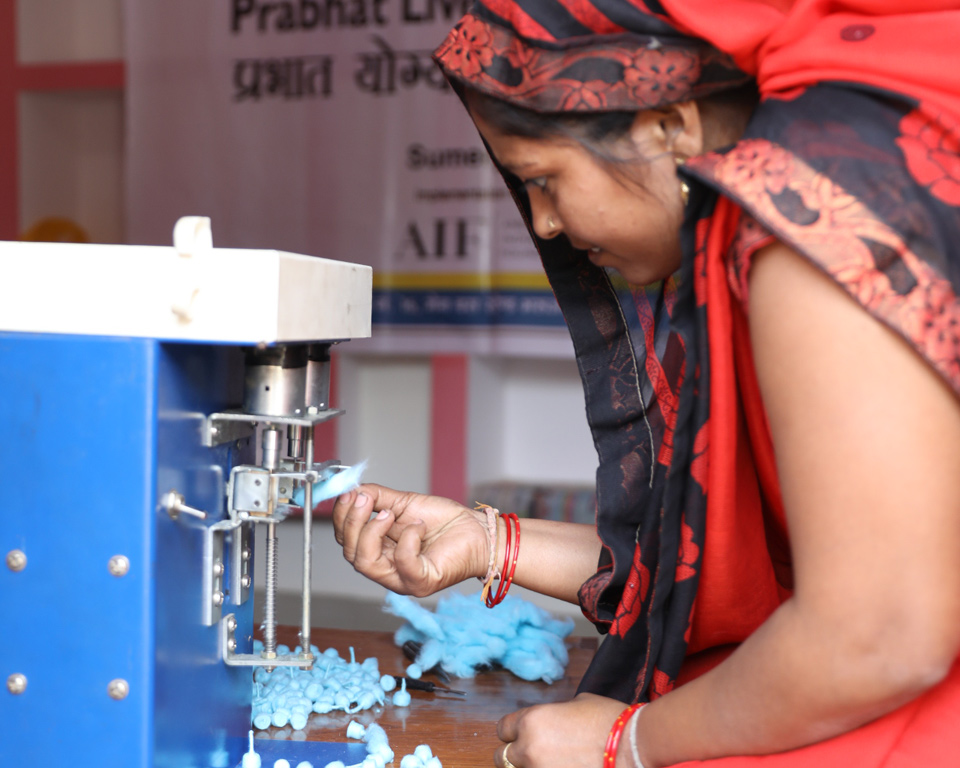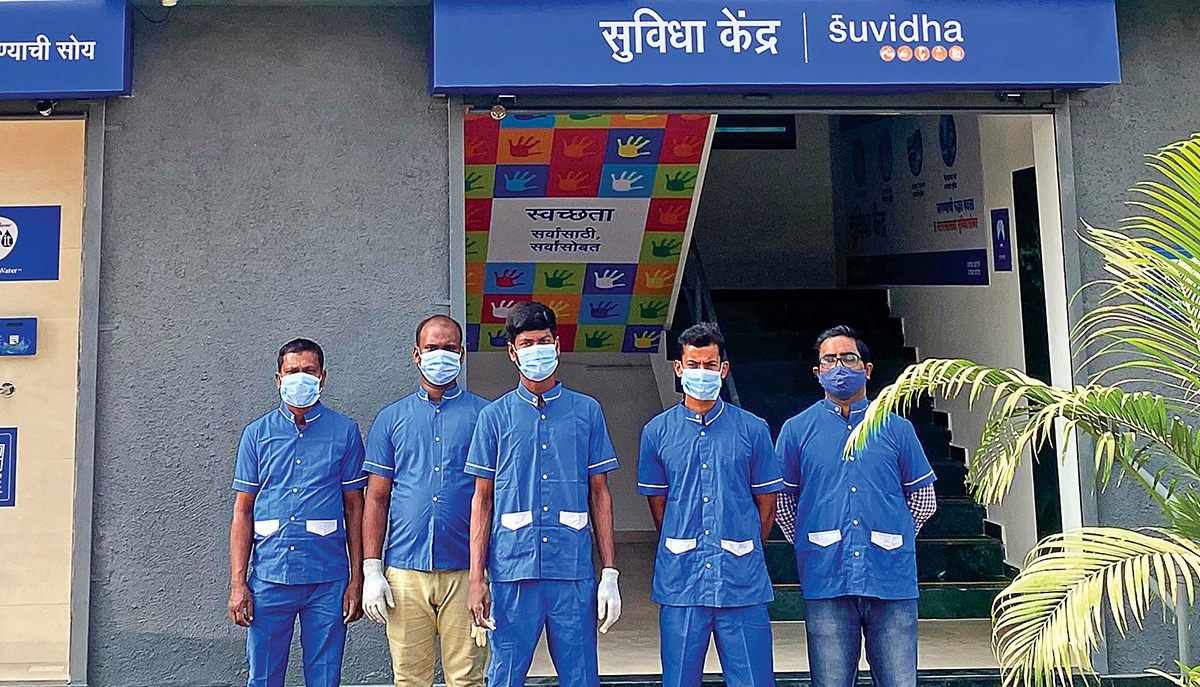
Businesses Should Promote Inclusive Growth and Equitable Development
Equity, diversity, and inclusion are the pillars of a thriving and progressive society and business. They signify a more robust world and workforce, bringing us closer to our customers as well as a fairer world. To this end, we have taken a holistic approach that focuses on using our scale and reach to create impact, driving equity through our workplaces, brands, supply chains, and communities.
Message from Our
Leadership
“We believe businesses can help tackle social inequality and drive prosperity. At the core of our business strategy is the conviction that sustainable and inclusive growth drive superior business performance, as when everyone prospers, we prosper.”
Deepak Subramanian Executive Director, Home Care

0%
Input material sourced from MSMEs
Nil
Projects undertaken requiring Rehabilitation and Resettlement
0%
Input material sourced within India
` 0 Crores+
CSR spent in Aspirational Districts
Essential Indicators
EI-1. Details of Social Impact Assessments (SIA) of projects undertaken by the entity based on applicable laws, in the current financial year.
During FY 2023-24, we have not undertaken any projects that require Social Impact Assessments (SIA).
| S. No | Name and brief details of project | SIA Notification No. | Date of notification | Whether conducted by independent external agency (yes/no) | Results communicated in public domain (yes/no) | Relevant Web link |
|---|---|---|---|---|---|---|
| 1 | Not Applicable | |||||
EI-2. Provide information on project(s) for which ongoing Rehabilitation and Resettlement (R&R) is being undertaken by your entity, in the following format:
During FY 2023-24, we have not undertaken any projects that require Rehabilitation and Resettlement (R&R).
| S. No | Name of Project for which R&R is ongoing | State | District | No. of Project Affected Families (PAFs) | % of PAFs covered by R&R | Amounts paid to PAFs in the FY (In `) |
|---|---|---|---|---|---|---|
| 1 | Not Applicable | |||||
EI-3. Describe the mechanisms to receive and redress grievances of the community.
We are committed to developing communities around our sites and redressing their grievances and concerns. Our people regularly engage with communities living around the sites to understand their concerns, and in case of a specific grievance, it is duly recorded, investigated, and acted upon. We also have an online hotline (Convercent portal - link ), where anyone can file concerns related to us, and are closely monitored by our Business Integrity team.
EI-4. Percentage of input material (inputs to total inputs by value) sourced from suppliers:
| Category | FY 2023-24 | FY 2022-23 |
|---|---|---|
| Directly sourced from MSMEs*/small producers | 22.7% | 16.8% |
| Directly from within India | 92.7% | 93.4% |
* Identification of MSME is basis intimation received from vendors.
EI-5. Job creation in smaller towns – Disclose wages paid to persons employed (including employees or workers employed on a permanent or non-permanent/on contract basis) in the following locations, as % of total wage cost.
| Location | FY 2023-24 | FY 2022-23 |
|---|---|---|
| Rural | 31.2% | 31.5% |
| Semi-urban | 6.3% | 6.2% |
| Urban | 6.8% | 7.8% |
| Metropolitan | 55.7% | 54.5% |
The reporting boundary for the above table is employees and workers represented in Section A – IV 20. We also indirectly employ members into our salesforce and those are out of the boundary of the above reporting.
Leadership Indicators
LI-1. Provide details of actions taken to mitigate any negative social impacts identified in the Social Impact Assessments (Reference: Question 1 of Essential Indicators above):
It is not applicable as there was no Social Impact Assessment required to be conducted during FY 2023-24.
| S. No | Details of negative social impact identified | Corrective action taken |
|---|---|---|
| 1 | Not Applicable | |
LI-2. Provide the following information on CSR projects undertaken by your entity in designated aspirational districts as identified by government bodies:
| S. No | State | Aspirational District | Amount spent (In ₹) |
|---|---|---|---|
| 1 | Multiple | Multiple* | 17,03,79,931 |
| 2 | Uttar Pradesh | Balrampur | 3,97,32,129 |
| 3 | Bihar | Muzaffarpur | 3,78,32,084 |
| 4 | Maharashtra | Osmanabad | 3,45,25,563 |
| 5 | Madhya Pradesh | Chhatarpur | 95,32,608 |
| 6 | Uttar Pradesh | Chitrakoot | 95,08,956 |
| 5 | Uttarakhand | Haridwar | 81,49,301 |
| Total | 30,96,60,572 |
*101 out of the 112 aspirational districts notified by the NITI Aayog.
LI-3. a. Do you have a preferential procurement policy where you give preference to purchase from suppliers comprising marginalised/vulnerable groups (yes/no)?
Yes, we are committed to increasing spends with diverse suppliers to create opportunities for all by breaking down sociocultural, systemic, and economic barriers. By including groups previously under-represented in our supply chain, we look forward to jointly scaling up and accelerating businesses, unlocking innovation, agility, resilience, and opportunities.
LI-3. b. From which marginalised/vulnerable groups do you procure?
We define a diverse business as at least 51% owned and operated by members of underrepresented groups. We continue our endeavour to increase spending with suppliers who embrace diversity, equity, and inclusion, matching our ethos. As per the global Unilever framework, the focus groups will be (but not limited to) the businesses owned, managed, and controlled by women, Persons with Disabilities, the LGBTQ+ community, economically marginalised communities, and backward sections of society.
LI-3. c. What percentage of total procurement (by value) does it constitute?
We are in the process of setting up a mechanism to quantify procurement from such diverse suppliers.
LI-4. Details of the benefits derived and shared from the intellectual properties owned or acquired by your entity (in the current financial year), based on traditional knowledge:
Not applicable.
LI-5. Details of corrective actions taken or underway, based on any adverse order in intellectual property related disputes wherein usage of traditional knowledge is involved.
Not applicable.
LI-6. Details of beneficiaries of CSR Projects
We are committed to
operating and growing our business in a socially responsible way. Our purpose is
to make sustainable
living commonplace.
Our Corporate Social Responsibility (CSR) Policy,
approved by the Board of Directors (Board), outlines a clear agenda
through which we will continue to contribute to the community at large. We have
been actively engaged in various CSR
projects involving inter-alia, water conservation, nutrition, skill development,
health, hygiene, waste management and
environmental sustainability. Please refer to our Integrated Annual Report for
more details on our CSR initiatives.

| S. No | CSR Project | No. of persons benefitted from CSR Projects | % of beneficiaries from vulnerable and marginalized groups |
|---|---|---|---|
| 1 | Promoting Health & Nutrition | 23,76,397 | 100.0% |
| 2 | Prabhat | 12,63,622 | 96.7% |
| 3 | Suvidha | 4,20,000 | 100.0% |
| 4 | Water conservation – HUF | 2,28,271 | 85.9% |
| 5 | Plastic waste management | 2,01,126 | 3.0% |
| 6 | Project Shakti | 2,00,000 | 100.0% |
| 7 | Future of work & livelihood | 81,559 | 30.0% |
| 8 | Empowering women in the field of sports and STEM | 55 | 100.0% |
In addition to the above, we also run several behavioural change programmes (e.g., the ‘bin boy’ campaign) across all media channels which has a widespread reach.